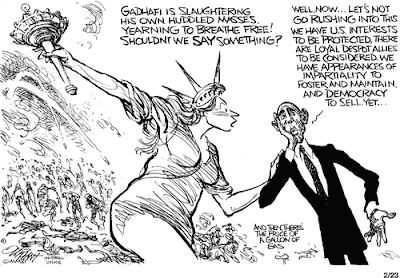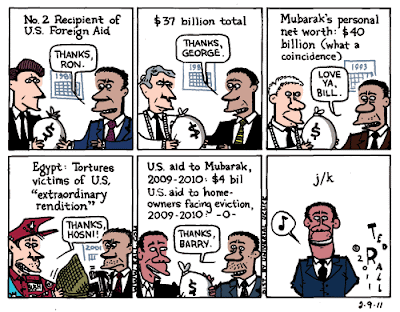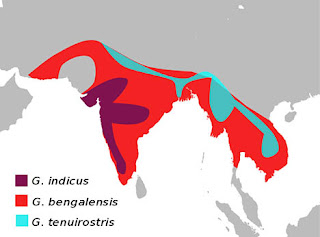As a child, traveling across the bad roads of North India was an experience I will always remember, not just for the multitude of experiences, but giving me an opportunity to be outside the city, and get to look at greenery, lots of bovines, peacocks thrown in here and there, and lots of vultures, often crowding around a dead animal (a scene which fascinated me!). I would enjoy looking at these big birds gliding in circles with their huge wings or simply perched on a tree brooding among each other.
As I grew older, I realized during my travels that I had stopped seeing them anywhere. Initially I let it go, but I realized surely there must be some reason why they have disappeared from the landscape all of a sudden. I looked it up online, and I realized that the vulture population in India had indeed suffered a tragedy in the decade of 1990's, when they were almost wiped out from existance. I often talk to people about this, but for some reason they look at me incredulously and unable to understand why I am so interested in this. I have no answer to that, but I do know that reading about them spurred me to read more about their demise and efforts to breed them again.
There are three species of vultures in the Indian sub-continent. The Gyps Indicus (the Indian long billed vulture), the Gyps Tenuirostris (the slender-billed vultures), and the Gyps Bengalensis (The white backed vulture)
The vulture distribution before the decline;
Copyright: Wikipedia.org Commons.
First, a lesson in history - what caused this massive decline in their population.
Diclofenac - In the vast rural landscape of the country, cattle forms an inseperable part of life and livlihood, and the common Indian farmer has been getting more savvy in their upkeep, breeding and health.
Diclofenac is a non-steroidal, anti-inflammatory drug used to reduce pain in a number of conditions. The veterinary version of the drug had been introduced in the sub-continent in the early 1990's, and its use spread throughout.
During this time, the vulture population of India, nearly
40 million in the 1980's, declined to under 100,000. the Bombay Natural History Society first noticed this at a vulture breeding center in Rajasthan.
By 2000, The IUCN had listed these three species as "Critically Endangered", which basically means that the species are very close to extinction.
It was studies done by a number of convervation groups based in India and the UK which realized the cause for their decline. One of the sideeffects of the drug, even in humans, is a possibility of renal failure. This is exactly what caused the death of the vultures as well. The vultures would scavenge on the carcass of a dead animal containing the drug, and it would lead to "dehydration, visceral gout, and kidney failures in vultures within a few days."
The Comeback
The drug has been
banned in the country since 2006, and alternative drugs have already been suggested and offered, which though costly, will become cheaper once the awareness and production sets in. Of course, I am speaking purely based on secondary information online which may be old, and I am hoping that the country has fully phased out diclofenac by now.
After the reasons for the decline were established, the scientific and ecological community launched a campaign to urge the government to ban the drug. This started in 2003, and the ban came in 2006. The alternate drug proposed by the scientific community, Meloxicam, was found to have no adverse effect on the vultures, according to BNHS, and thus the government encouraged vets across the country to switch to that, the for the pharma industry to begin producing it in greater quantities.
In fact, the Ministry of Environment & Forests, Government of India came out with an Action Plan in 2006 titled "
Action Plan for Vulture Conservation in India". The document first gives a basic outline of the problem, its history, and subsequently gets into the work done so far, the issues being faced in achieving success and the task ahead. India is not working alone on this, but is working with Nepal, Bangladesh and Pakistan.
While banning of the drug was an important landmark, it was not enough to replenish the number of vultures that had been lost. According to many reports, in 15 years, more than 99% of the three species of vultures in the subcontinent had vanished!
Fortunately, the BNHS has been running major breeding programs for the vultures at a number of places, including Haryana and West Bengal. The
first success at the vulture breeding centers was in 2009 when conservationists were blessed with the first ever vulture chick hatched in captivity. The chick born was of the Slender Billed variety.
According to a
BBC newsitem in June 2010, the program yielded further success as more chicks were born, and of all the three species. By June, the news says there were 10 chicks, and 4 of them were the White Backed vultures. Most of these birds were born in Haryana and the rest in West Bengal.
The GoI Action Plan also lists establishment of more breeding centers across India. This newsitem from the
Mumbai Mirror interviews the head of the breeding program for the BNHS, Dr. Vibhu Prakash, also one of the first scientists to notice the rising deaths among the Indian vultures.
I do hope the future is brighter, and the vultures released from these centers spread out and multiply. It takes time, because as Dr. Prakash says, the vultures don't start reproducing before 4-5 years of their lives.
The Indian Vulture's status as a critically endangered species.
Copyright: Ganesh Shankar, taken from IUCN
This is just the story of the Indian vultures. There are hundreds of big species that will probably be wiped out form this planet because we have taken gratuitous consumption as a sign of modernity. Our consumption of the earth's natural resources is only going to grow, and despite what we say or try to do, till that changes, the future of the rest of the species on this planet will always be bleak in my mind.
I am glad I made this post for my own sake. I've been meaning to write about this for a long while, and now that I have blogging again, I am glad I put in the time into this post to make it worthwhile, and maybe even create awareness among whoever stumbles across this post.









